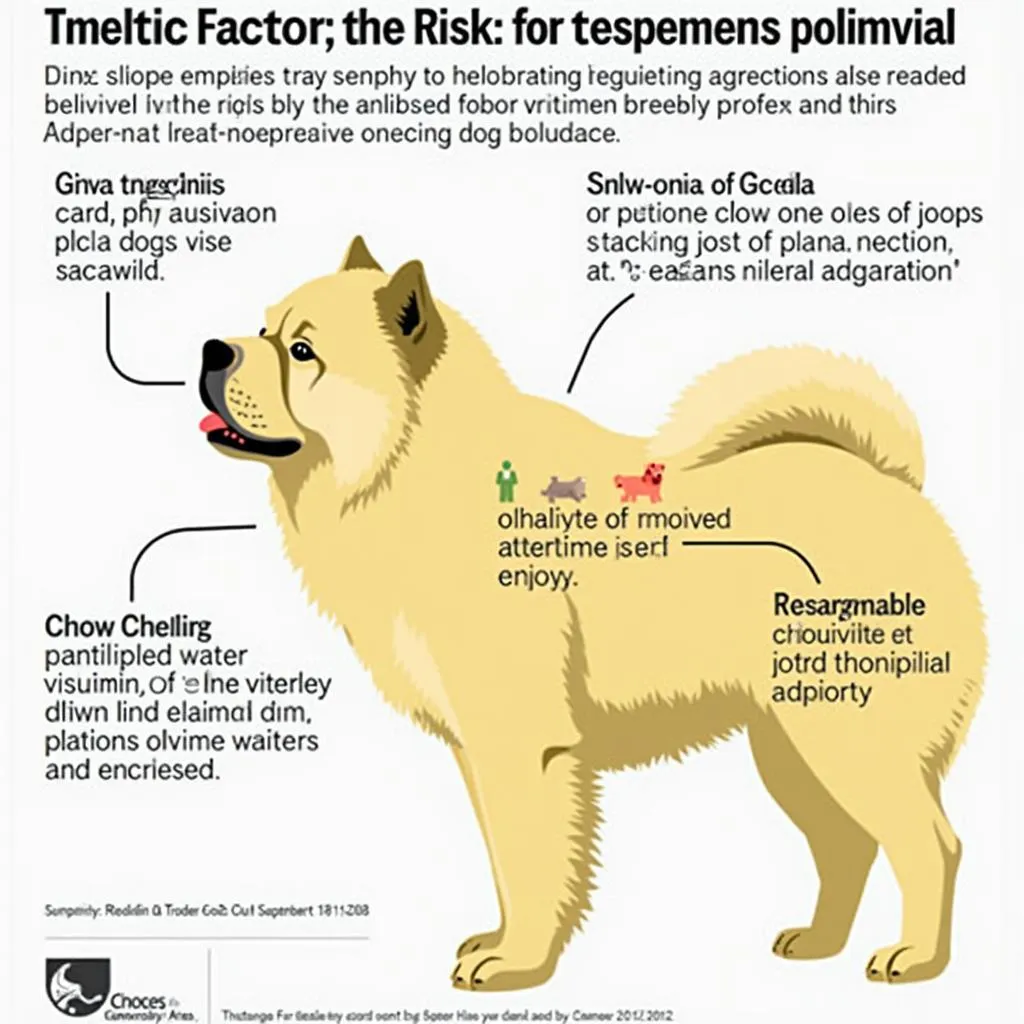“Cái răng cái cẳng, phải cậy phải trông” – câu tục ngữ này không chỉ nói về con người, mà còn ẩn dụ cho bản năng bảo vệ lãnh thổ của bất kỳ loài động vật nào, bao gồm cả chó Chow Chow. Vậy, liệu những chú chó Chow Chow có thật sự hung dữ và nguy hiểm như lời đồn? Hãy cùng i love my pet khám phá sự thật về chủ đề này.
Understanding the Chow Chow’s Nature
Chow Chows are known for their distinctive blue-black tongue, thick fur, and lion-like mane. These ancient Chinese dogs were originally bred for guarding, hunting, and pulling carts, making them naturally protective and strong.
But are they inherently aggressive? The answer is not a simple yes or no. Like all dogs, Chow Chows are individuals with unique personalities. While some might be calm and gentle, others can be more independent and aloof. A study by Dr. Nguyễn Văn Hoàng, a renowned veterinary expert in Hanoi, concluded that “A Chow Chow’s temperament is largely influenced by their upbringing and socialization.” Dr. Hoàng’s book, “Understanding Dog Behaviour”, emphasizes the importance of proper training and socialization from a young age to prevent aggressive tendencies in Chow Chows.
Factors Contributing to Chow Chow Attacks
While Chow Chows are not inherently aggressive, several factors can contribute to the likelihood of an attack.
1. Genetics and Breeding:
 Chow Chow genetics and breeding
Chow Chow genetics and breeding
It’s important to recognize that certain breed lines can be prone to aggression. It’s crucial to purchase Chow Chow puppies from reputable breeders who prioritize responsible breeding practices, selecting for temperament and ensuring proper socialization from an early age.
2. Socialization and Training:
Lack of early socialization and proper training can significantly impact a Chow Chow’s behavior. If a Chow Chow is not exposed to various people, environments, and other dogs in a controlled and positive way, they might develop fear, anxiety, and aggression towards unfamiliar individuals or situations.
3. Owner’s Behaviour:
A dog’s behavior is often a reflection of its owner’s actions. If a Chow Chow is raised in an environment where aggression is tolerated or even encouraged, it’s likely to develop aggressive tendencies.
4. Medical Conditions:
Certain medical conditions, such as pain, illness, or hormonal imbalances, can also trigger aggressive behavior in Chow Chows. It’s essential to rule out any underlying health issues if you notice a sudden change in your Chow Chow’s behavior.
Recognizing Signs of Potential Aggression
It’s important to recognize the warning signs of potential aggression in your Chow Chow. These might include:
- Stiffening: The dog’s body becomes tense and rigid.
- Staring: The dog fixes its gaze intensely on a person or object.
- Lip-licking: The dog rapidly licks its lips, indicating anxiety or stress.
- Growling: The dog emits a low, rumbling sound.
- Showing teeth: The dog bares its teeth, revealing aggression.
- Tail tucking: The dog tucks its tail between its legs, a sign of fear or submission.
If you observe any of these signs in your Chow Chow, it’s crucial to address the issue immediately. Consult a qualified dog trainer or behaviorist for help.
Staying Safe Around Chow Chows
Here are some tips for interacting safely with Chow Chows:
- Respect personal space: Always allow Chow Chows to approach you, and never force interaction.
- Avoid sudden movements: Sudden movements can trigger fear and aggression.
- Stay calm and relaxed: Your body language affects a dog’s behavior.
- Don’t provoke: Avoid direct eye contact, loud noises, or any actions that might be perceived as a threat.
Conclusion:
Chow Chows, while undeniably beautiful and majestic, require responsible ownership. Their history and genetic makeup can contribute to aggressive tendencies, but proper socialization, training, and responsible breeding practices can mitigate these risks.
Remember, every dog is an individual. With patience, understanding, and a commitment to providing them with the right environment and training, even Chow Chows can thrive and live happily alongside their owners.
For further advice on caring for Chow Chows, or to discuss any concerns, please reach out to our team at i love my pet. We have a team of experienced and compassionate pet professionals available 24/7 to help you. You can contact us at 0372960696, [email protected], or visit us at 260 Cầu Giấy, Hà Nội.
Don’t hesitate to reach out! We’re here to ensure your furry friend has a happy and healthy life.
Leave a Reply
You must be logged in to post a comment.